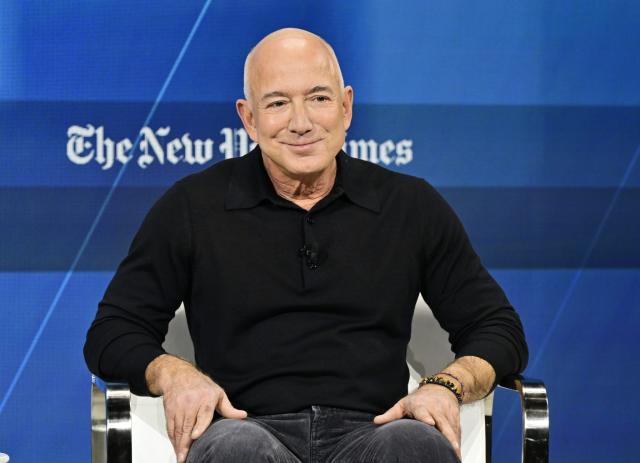zoomacademia.com – Jeff Bezos, the founder of Amazon and one of the most influential entrepreneurs of the modern era, exemplifies innovation, perseverance, and visionary leadership. From his humble beginnings to becoming a global icon, Bezos’ journey offers valuable insights into achieving success. Here, we explore the key elements behind his remarkable career and the lessons we can learn from his story.
Early Life and Education
Born on January 12, 1964, in Albuquerque, New Mexico, Jeff Bezos showed an early passion for science and technology. He excelled academically and graduated from Princeton University in 1986 with degrees in electrical engineering and computer science. This strong foundation laid the groundwork for his future endeavors.
The Birth of Amazon
Bezos’ journey to success began with a bold decision to leave his stable job at a Wall Street hedge fund. In 1994, he founded Amazon.com in a garage in Seattle, starting as an online bookstore. Bezos’ vision was clear: to create the “Everything Store,” where customers could find and buy anything online.
Despite the skepticism surrounding e-commerce at the time, Bezos pursued his idea relentlessly. By focusing on customer experience, innovation, and long-term growth, Amazon quickly expanded its offerings, eventually becoming the global e-commerce giant it is today.
Core Principles Behind Bezos’ Success
- Customer Obsession
- Bezos emphasized putting the customer first. His philosophy was to “start with the customer and work backward,” ensuring that every decision at Amazon revolved around enhancing the customer experience.
- Long-Term Thinking
- Bezos often prioritized long-term gains over short-term profits. He reinvested heavily in innovation, infrastructure, and new ventures, such as Amazon Web Services (AWS), which became a major source of revenue.
- Innovation and Experimentation
- Bezos fostered a culture of experimentation at Amazon, encouraging employees to take risks and learn from failures. This approach led to groundbreaking innovations like Prime, Alexa, and Kindle.
- Relentless Work Ethic
- Known for his discipline and determination, Bezos worked tirelessly to turn his vision into reality. His ability to focus on execution while adapting to market changes set him apart as a leader.
Overcoming Challenges
Bezos faced numerous challenges throughout his career, from early financial struggles to intense competition and criticism. However, he remained steadfast, viewing obstacles as opportunities to innovate and improve. His resilience and problem-solving skills were key to Amazon’s continued success.
Bezos’ Philosophy on Leadership
Bezos often spoke about the importance of hiring and retaining top talent, empowering teams, and fostering a culture of high standards. He believed in making decisions with a bias for action, prioritizing speed and efficiency without sacrificing quality.
Ventures Beyond Amazon
In addition to his achievements at Amazon, Bezos founded Blue Origin, a private aerospace company aiming to make space travel accessible. His ventures into space exploration reflect his bold vision for the future of humanity.
Bezos also acquired “The Washington Post” in 2013, revitalizing the newspaper with digital innovation and a renewed focus on investigative journalism.
Lessons from Jeff Bezos’ Success
- Dream Big: Start with a bold vision and pursue it with determination.
- Focus on the Customer: Make customer satisfaction a cornerstone of your business.
- Embrace Failure: Learn from mistakes and use them as stepping stones to success.
- Think Long-Term: Invest in future growth rather than seeking immediate rewards.
- Stay Resilient: Overcome challenges with creativity and perseverance.
Conclusion
Jeff Bezos’ success story is a testament to the power of innovation, hard work, and unwavering focus on long-term goals. His journey inspires entrepreneurs, leaders, and dreamers worldwide to think big, embrace challenges, and create meaningful change. As Bezos himself once said, “If you’re not stubborn, you’ll give up on experiments too soon. And if you’re not flexible, you’ll pound your head against the wall and you won’t see a different solution to a problem you’re trying to solve.”










